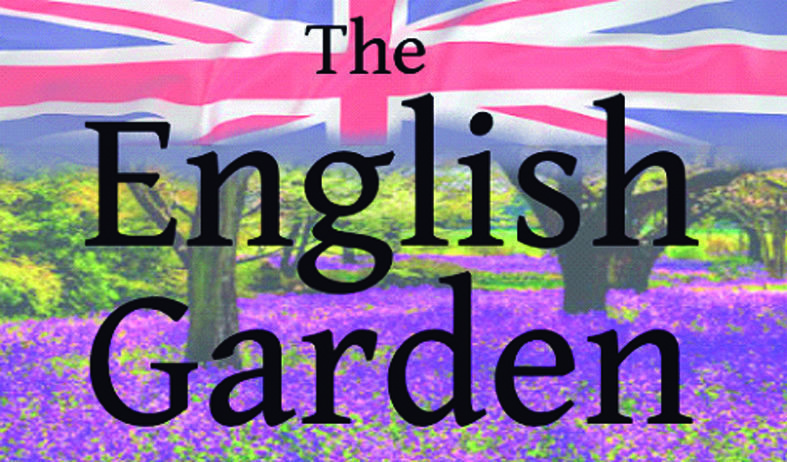¿Qué tiene en común un docente y un jardinero? Pues, mucho. Si lo miras bien, casi es el mismo trabajo. Lo dijo Gertrude Jekyll (una gran jardinera de hace un siglo; ningún pariente del doctor asesino), 'A garden is a grand teacher' - Un jardín es un gran educador. Lo mismo se puede decir de la calle, del deporte o de la vida misma, pero su frase sigue: 'It teaches patience and careful watchfulness' – Enseña paciencia y una observación meticulosa – lo cual tiene poco que ver con ir al partido los sábados, o debatir con tu amigo en el bar. (¿Buscar parking en el centro? ¡Eso sí!)
El ensayista estadounidense, Ralph Waldo Emerson, se preguntó 'What is a weed?' - ¿Qué es una mala hierba? - y respondiendo, definió: 'A plant whose virtues have never been discovered'. Una planta cuyas virtudes no se han descubierto nunca. ¿Puede haber un planteamiento que mejor define a un educador comprometido? Es su tarea descubrir esa virtud en el estudiante y cultivarla. Si para el jardinero no hay mala hierba, para el docente tampoco debe de haber un mal estudiante.
Dudo que sea el primero en comparar el jardín y el aula. Si no, ¿porque en inglés la palabra nursery significa a la vez 'guardería' y 'vivero'? Da para pensar....Otro ejemplo: se asocia a Audrey Hepburn con el glamour de Desayuno con Diamantes y más bien poco con el rastrillo y las botas de goma. Pero la verdad es que el jardín fue su pasión. 'To plant a garden is to believe in tomorrow' – Plantar un jardín es creer en la mañana - es una frase celebre suya. También es tarea de los profesores plantar una semilla y ayudarla a crecer. Creo que algo que hemos perdido un poco, con los exámenes y las notas del trimestre, es ese sentido del futuro, esa actitud del jardinero que piensa más a largo plazo.
Barabara Dodge Borland fue escritora del libro 'This is the way my garden grows' – Así crece mi jardín. 'A gardener learns more in the mistakes than in the succeses' – Un jardinero aprende más en los errores que en los triunfos – fue comentario suyo, y se puede aplicar fácilmente al estudiante de idiomas. Sin fallos simplemente no hay progreso.
Si el estudiante aprende que no debe cometer errores, poco más aprenderá. Los que mejor y más rápido progresan en un idioma son aquellos que dejan a un lado su vergüenza, su miedo de fallar, y se lanzan a hablar. Entonces no sólo pone en práctica todo lo aprendido, sino el profesor le puede corregir y empezará un verdadero proceso de aprendizaje.
Por estos razones hemos decidido llamar a nuestra nueva academia 'The English Garden'. Eso, y porque quiero hacer un homenaje a mi condado Kent, 'El jardín de Inglaterra'. En octubre ya es algo tarde para buscar clase, pero por si acaso nos puedes encontrar en Ponferrada, en la esquina entre la calle Ortega y Gasset (bajando desde Luis del Olmo) y Avenida Reyes Católicos (pasando la escuela de música). Si es más fácil, el número de teléfono es 645 405 919. Son clases con un máximo de 6 estudiantes por clase, desde los 4 años hasta adulto. Nada de apoyo escolar, ni libros de texto, ni ejercicios de gramática. Nuestro objetivo es cultivar el habla (y la escucha) en inglés, para que florezca con los años.
Dudo que sea el primero en comparar el jardín y el aula. Si no, ¿porque en inglés la palabra nursery significa a la vez 'guardería' y 'vivero'? Da para pensar....
A continuación unos ejercicios.
My Garden in Kent
Last year I got fed up with working in London – the traffic jams, the crowded buses and underground, the rush and stress – so I decided to move out into the countryside.
After looking around, I found a little (a) run-down (b) cottage in the county of Kent. It was small and needed a lot of work, but I fell in love with it straight away. The first thing I did was put on my (c) wellies and walk out into the garden. It was like a jungle!
First I cut back the long grass and (d) weeds with a (e) strimmer, and when I found a plant with deep (f) roots I took the (g) spade to (h) dig it up. Imagine my surprise after two days, when I fell into a (i) pond in the middle of the garden!
It's taken me a year, but now I'm the proudest gardener in Kent. From the patio just at the back of the house there's a beautiful green (j) lawn and a (k) path that goes up to the pond and then to the (l) greenhouse at the back of the garden, and the (m) shed where I keep my (n) wheelbarrow, (o) lawnmower and all the rest.
So that's it! All that hard work was not in vain. Now I have to start with the house......
Find the word in the text:
1. Small wooden house used to store garden tools =
2. A small lake in a garden =
3. Rubber boots used by gardeners =
4. Small country house (like in the fairy tales) =
5. Machine with two handles for cutting high vegetation =
6. Machine that you push along (or sometimes drive) to cut short grass =
7. Plants that are not popular with gardeners =
8. The part of the plant that is underground =
9. Gardeners use this to carry things. It's got one wheel and two handles =
10. Neglected, not cared for =
11. Area of cut grass in a garden=
12. Way, track, place to walk =
13. Small glass house for growing strawberries, tomatoes... =
14. To make a hole in the earth =
15. The tool you use to make a hole in the earth =
Answers? http://profesornativogratis.com/gardening-vocabulary-mini-class/
|Jonathan Olliffe
(profesornativogratis.com)







